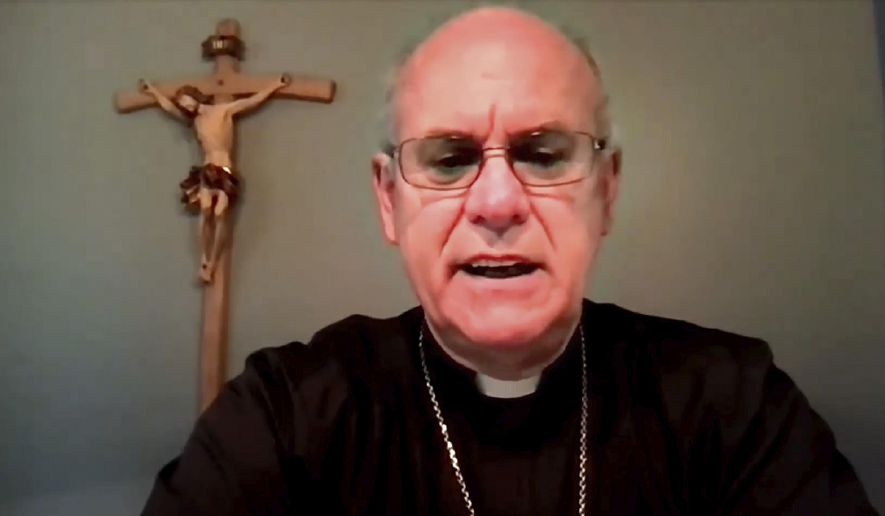If Catholic politicians who support abortion rights were anxious about being restricted from receiving Holy Communion, they can breathe easier. Such a prohibition is now off the table at Thursday’s U.S. Conference of Catholic Bishops.
“We are no longer proposing a national policy” regarding who may present themselves for Communion, Bishop Kevin Rhoades of Indiana’s Fort Wayne-South Bend Diocese told delegates to a virtual USCCB spring meeting. Bishop Rhoades, who chairs the group’s doctrinal committee, conceded the notion “was in the original proposal” for the document, he added, “We never meant it as it’s been interpreted in many media sources.”
The proposal to write guidelines containing such a restriction had been the talk of American Catholics since the election of President Biden in November.
Though often photographed with a Rosary once owned by his late son, Beau, Mr. Biden’s administration has — presumably with his assent — undertaken several steps to liberalize federal abortion funding in the U.S. and abroad this year.
In May, the administration released a proposed fiscal year 2022 budget that omitted reference to the 1976 “Hyde Amendment” which banned federal funding for most abortion procedures. The president had supported its use until his 2019 campaign for the Democratic Party nomination.
Conservatives in the Roman Catholic Church have pressed bishops to deny communion to politicians such as Mr. Biden, House Speaker Nancy Pelosi of California and Sen. Tim Kaine of Virginia, both Democrats, and many others. Others in the Church have adopted the stance of Pope Francis, who declared in a June 7 homily that the Eucharist “is not the reward of saints, but the bread of sinners.”
Among those refusing to restrict Mr. Biden from receiving the sacrament is Washington Archbishop Cardinal Wilton Gregory, who has called for dialogue with Catholic politicians such as the president who support abortion rights against church teaching.
According to Bishop Rhoades, the idea of setting a standard for the administration of Communion in the United States came from the Vatican’s chief doctrinal panel.
“As a matter of fact, the whole idea of a national policy didn’t come from the [bishop’s] Committee on Doctrine. It came from the Congregation for the Doctrine of the Faith” as the two groups consulted, Bishop Rhoades told a news conference after the meeting. He added that the Vatican office “saw differences of opinion among bishops regarding who should receive Holy Communion. So that’s really where we got that idea from.”
Arlington, Virginia, Bishop Michael F. Burbidge also emphasized the preliminary nature of this week’s discussions and potential vote to proceed with the drafting of a document on the Eucharist.
Bishop Burbidge said what “the bishops are seeing Thursday is merely an outline. And with the vote to go forward with it, then that full process of discussion and amendments — the bishops will have plenty of time to weigh in on that.”
The virtual spring meeting of the USCCB continues through Friday.
• Mark A. Kellner can be reached at mkellner@washingtontimes.com.




Please read our comment policy before commenting.